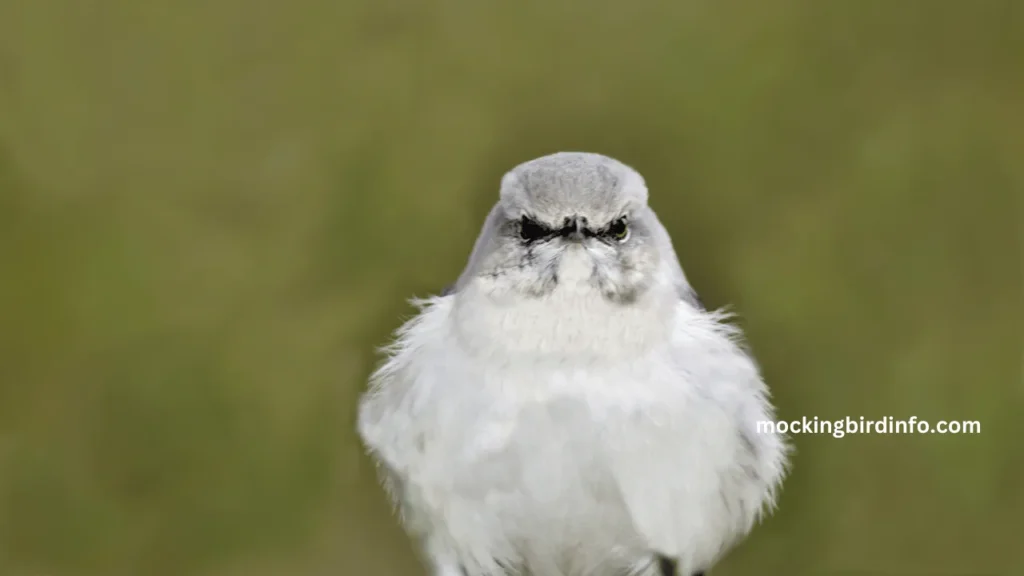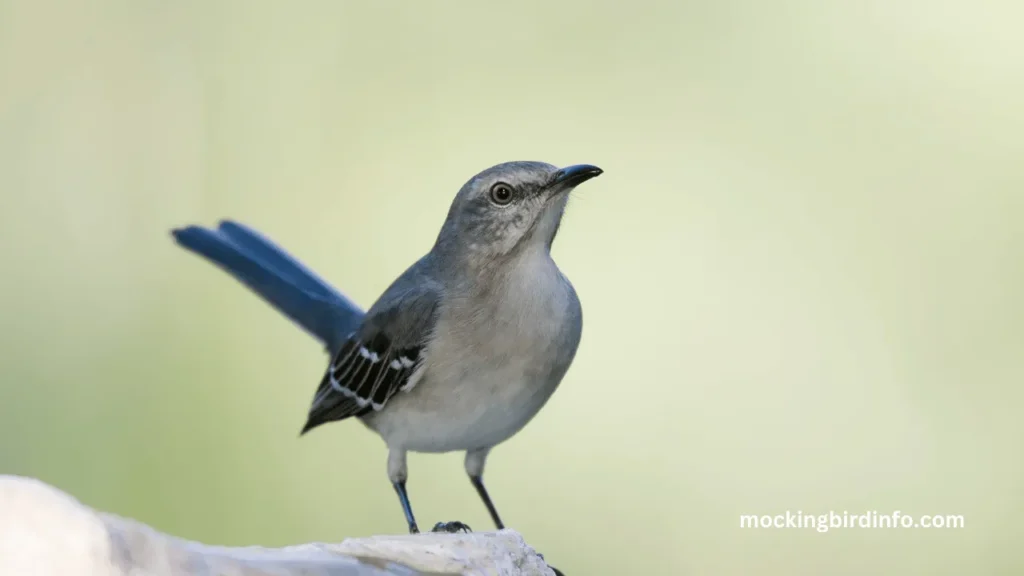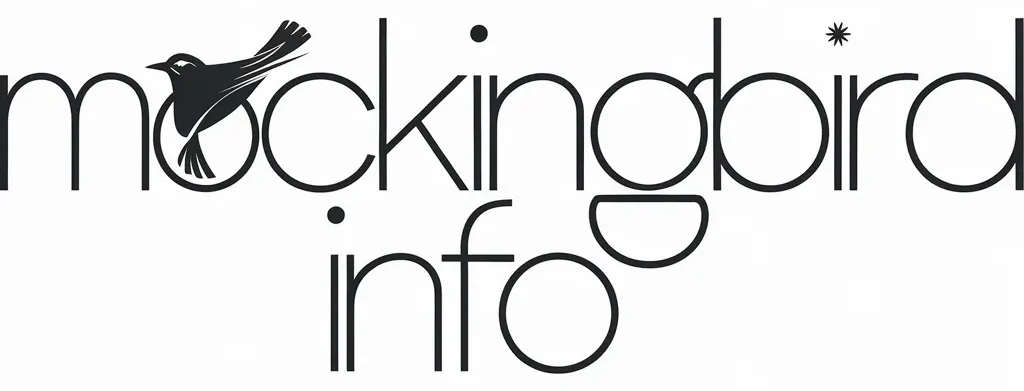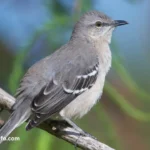Have you ever been minding your own business in the garden, only to feel the sudden swoop of a bird coming straight toward your head? If so, it might have been a mockingbird in defense of its territory.
Known for their striking songs and remarkable ability to mimic other birds, these creatures can often surprise people with their unexpected aggression. While they’re usually known for their charming vocal talents, many who encounter them during the breeding season know that mockingbirds can be anything but gentle when they feel threatened.
Mockingbirds, typically known for their beauty and song, can exhibit aggressive behavior when they’re defending their nests, territory, or young. Although they’re not inherently violent, these birds are extremely protective, and their protective instincts can lead to some surprising encounters.
In this post, we will explore why mockingbirds sometimes display aggressive tendencies, the factors that influence this behavior, and how humans can coexist peacefully with these fascinating birds.
By diving into mockingbird aggression, we will take a closer look at the territorial nature of these birds, how their defense strategies unfold, and the human factors that might trigger an aggressive response.
Understanding these elements can help you appreciate mockingbirds not just as skilled singers, but as incredibly complex creatures with their own set of survival instincts. Let’s explore what makes these feathered defenders so unique.

Contents
Factors Influencing Aggression
Territorial Defense
Mockingbirds are renowned for their territorial nature, especially during the breeding season. When they are preparing to nest or are caring for their young, they are fiercely protective of the areas they claim as their own.
Their territory often extends over yards, gardens, and even larger patches of land, and they will go to great lengths to defend it. Any intruder, whether it’s another bird or a human getting too close to their nesting site, will quickly become the target of their aggression.
During these heightened periods of territorial defense, mockingbirds can be observed chasing off other birds, sometimes even species that are much larger. This defensive instinct is a survival mechanism, ensuring that they maintain a safe environment for raising their offspring.
When mockingbirds feel that their territory is being invaded, they may resort to vocalizations, physical displays, and sometimes even direct attacks.
Nest Protection
One of the most intense forms of aggression in mockingbirds is seen when they are protecting their nests. A mockingbird’s nest is sacred territory, and they will not hesitate to attack anything they perceive as a threat to it.
This may include not just other birds, but also humans, pets, or any moving object that comes too close. During this time, they may become quite aggressive, dive-bombing perceived threats with alarming precision and force.
It’s not just the nest that they defend—mockingbirds are also known to protect their young. If they feel their chicks are in danger, mockingbirds will take extreme measures to ward off potential threats, including a series of high-speed dives aimed at disturbing or even striking the intruder.
Their loud and intimidating calls also serve as a warning to any animals or humans who are encroaching upon their space.
Human Interaction
The presence of humans, especially in areas where mockingbirds are nesting, can trigger aggressive behavior. Activities like gardening, birdwatching, or even casual walking near a nesting site can provoke these birds.
Mockingbirds are highly sensitive to changes in their environment, and when they feel a human is too close to their nest, their defensive instincts are triggered. Human proximity can result in aggressive mimicry or intense vocalizations meant to scare off the intruder.
In some cases, mockingbirds have been known to harass humans persistently if they feel their nest is being threatened. This behavior, while startling, is not personal—it’s simply the bird acting out of instinct to protect its young and its home.
Defensive Behaviors
Vocalizations
Mockingbirds are famous for their vocal range and ability to mimic the songs of other birds and even non-bird sounds. However, during the breeding season, their vocalizations take on a more aggressive tone.
A loud and continuous call, sometimes mimicking predators, serves as a warning to intruders. In addition to vocalizations, mockingbirds can sing aggressively, trying to drive competitors away from their territory.
These birds can also produce a variety of harsh calls, a sharp contrast to their typical melodious songs. This vocal display is not only a sign of aggression but also an attempt to assert dominance over the area and signal to other mockingbirds that this territory is already claimed.
Physical Displays
In addition to vocalizations, mockingbirds engage in several physical displays to intimidate intruders. One common strategy is wing-flapping, where the bird will rapidly open and close its wings in a display designed to make it appear larger and more threatening.
Mockingbirds may also perform posturing, puffing up their chest and tail feathers to make themselves seem more formidable. During a confrontation, the mockingbird might even dive-bomb a perceived threat.
They can fly at high speeds, often coming dangerously close to their target without actually making contact. The goal of these physical displays is to scare off intruders without causing injury.
Direct Attacks
In rare cases, when all else fails, mockingbirds may resort to physical attacks. These are usually directed at predators or perceived threats to their nests. A mockingbird’s sharp beak can be used to peck or strike at the intruder, and their agility in flight allows them to deliver these blows with great precision.
While these attacks are rarely severe, they serve as a clear message: stay away from their territory.
These attacks are not necessarily about aggression for aggression’s sake. Rather, they are strategic moves to protect the mockingbird’s home and young. Once the perceived threat is gone, the bird will often calm down and return to its usual behavior.

Misconceptions and Reality
Myth of the Mythical Aggressor
One of the most persistent misconceptions about mockingbirds is that they are always aggressive. While they can be territorial and defensive, mockingbirds are not inherently dangerous.
Most mockingbird interactions with humans are harmless. Their aggressive behavior is typically situational, occurring primarily during the breeding season when they are most protective.
Many people mistakenly assume that all mockingbirds will aggressively defend any space they occupy, but the reality is much more nuanced. Most mockingbirds are non-aggressive unless they feel their territory or offspring are threatened.
In general, they are peaceful creatures that prefer to avoid conflict unless absolutely necessary.
Individual Variation
It’s important to recognize that there is variation in the aggressiveness of individual mockingbirds. Factors like age, sex, and past experiences can influence how aggressively a bird will defend its territory.
For example, a more experienced mockingbird might be better at handling intruders, while a younger or less confident bird might be more prone to defensive behavior. Male mockingbirds, who are typically the primary defenders of the nest, may also be more aggressive than females.
Coexisting with Mockingbirds
Respecting Territory
The best way to avoid provoking an aggressive mockingbird is to respect its territory. If you notice a mockingbird aggressively defending a particular area, it’s best to steer clear and avoid getting too close. Understanding the signs of territorial aggression can help you recognize when to give the bird its space.
Minimizing Disturbance
Another way to peacefully coexist with mockingbirds is to minimize disturbances to their nesting areas. If you enjoy feeding birds, consider using bird feeders that are less likely to attract mockingbirds, or place them away from areas where these birds might be nesting. Keeping a respectful distance from these areas will help keep the mockingbirds calm.
Appreciating Their Role
Despite their occasional aggression, mockingbirds play an important role in the ecosystem. Their songs contribute to the overall soundscape, and they help control insect populations. Appreciating these birds for their beauty, songs, and ecological importance is a great way to foster a respectful relationship with them.
Conclusion
In conclusion, while mockingbirds can exhibit aggressive behavior, it is often a product of their territorial instincts or their protective nature during the breeding season. Understanding the factors that influence this aggression can help us better appreciate these fascinating birds without fear.
By respecting their space and minimizing disturbances, humans can coexist peacefully with mockingbirds, enjoying their songs and unique behaviors. Mockingbirds remind us that aggression in the animal kingdom is often about survival and protection rather than malice.
By embracing their complex behavior, we can enjoy observing them without causing undue stress. Let’s appreciate mockingbirds not just for their songs, but also for their remarkable territorial defenses that ensure the survival of their species.
FAQs
1. Why do mockingbirds become aggressive?
Mockingbirds become aggressive mainly due to territorial defense and nest protection during the breeding season. They are highly protective of their space and young.
2. Do mockingbirds attack humans?
While mockingbirds may occasionally attack humans, it typically happens when the bird feels its territory or nest is being threatened. These attacks are usually not harmful but serve as a warning.
3. Can mockingbirds be tamed?
Mockingbirds are wild birds, and taming them is not advisable. They are best appreciated from a distance, especially to avoid triggering aggressive behavior.
4. What do mockingbirds eat?
Mockingbirds are omnivores and eat a variety of foods, including insects, fruits, and seeds.
5. How long does mockingbird aggression last?
Mockingbird aggression usually peaks during the breeding season and can last for several weeks, depending on the stage of nesting and the presence of threats.
6. How do I avoid upsetting a mockingbird?
To avoid upsetting a mockingbird, maintain a respectful distance from their nests or territory, especially during the breeding season. If you notice a mockingbird becoming agitated, back away slowly and give the bird space.








